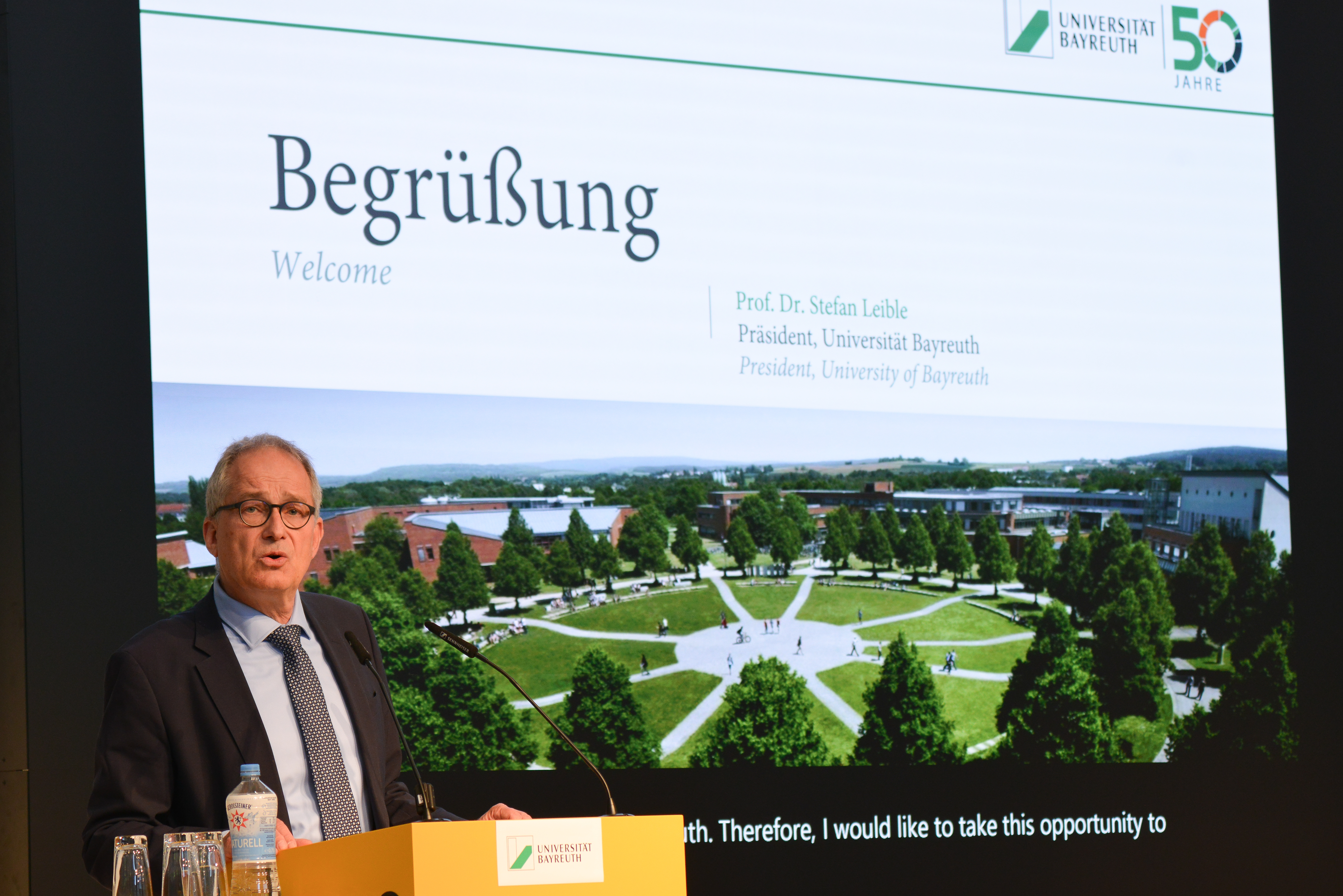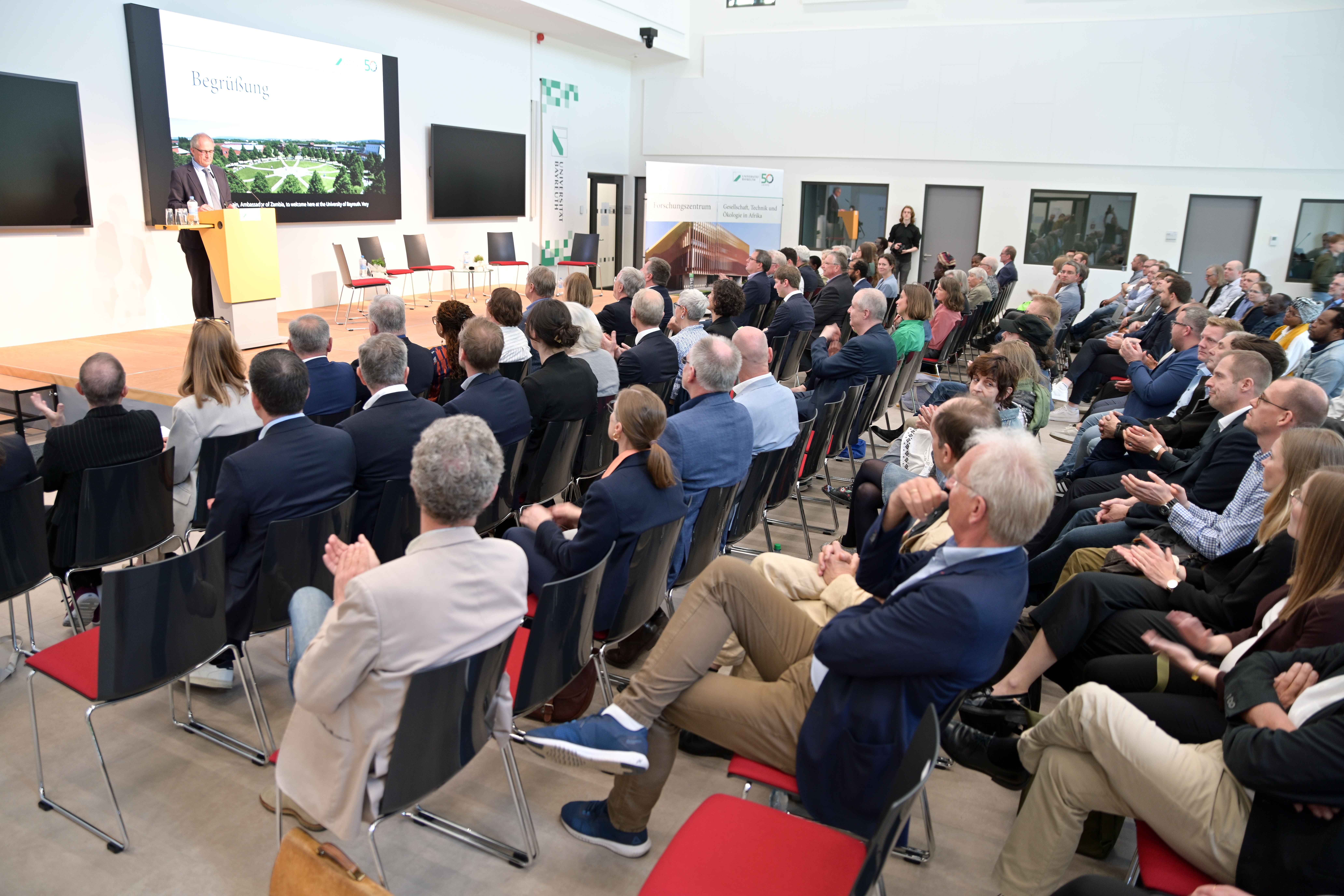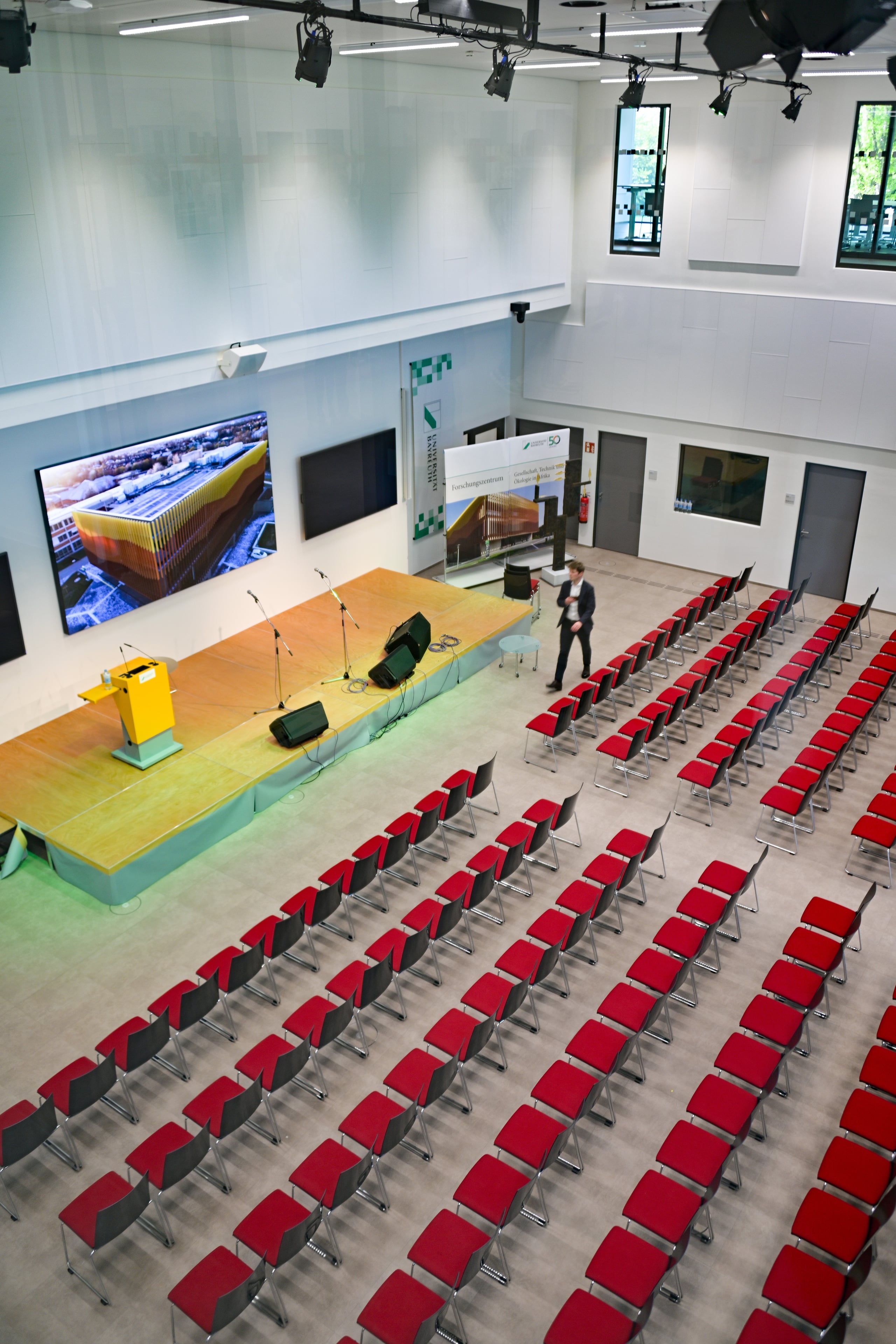News
University of Bayreuth Inaugurates New Research Centre for African Studies
14.05.2025
The University of Bayreuth has opened its new Research Centre for African Studies (FZA), bringing together leading expertise on African societies, technology, and ecology. The state-of-the-art facility marks a major step in the university’s long-standing commitment to interdisciplinary research on Africa.
The University of Bayreuth has officially opened its new Research Centre for Society, Technology and Ecology in Africa (FZA), marking a significant milestone in its longstanding commitment to African studies. The inauguration ceremony was attended by Bavaria’s Minister for Building, Christian Bernreiter, and Dr. Michael Mihatsch, Ministerial Director at the Bavarian State Ministry of Science and the Arts.
Minister Bernreiter praised the university’s leadership in African research: “The University of Bayreuth is a flagship institution in Bavaria. This new facility further enhances its outstanding reputation in African studies.” The FZA was completed in just two years under the oversight of the State Building Authority of Bayreuth, with W. MARKGRAF GmbH & Co KG serving as general contractor. The €39.2 million project was jointly funded by the Federal Government (€11.5 million) and the Free State of Bavaria (€27.7 million).
A New Hub for African Studies
Spanning 3,000 square metres, the FZA brings together the university’s diverse African studies departments under one roof, fostering interdisciplinary and transdisciplinary collaboration. University President Professor Dr. Stefan Leible emphasized the significance of this achievement: “Since our founding in 1975, African studies have been central to our teaching and research. With around 45 professorships today, this field is a pillar of our academic identity.” Dr. Mihatsch echoed this sentiment, adding: “Excellent research requires excellent infrastructure – and this building is a testament to that principle.”
The FZA is the university of Bayreuth’s first dedicated research building. So far, it hosts the Institute of African Studies (IAS), and the Africa Multiple Cluster of Excellence including the Bayreuth International Graduate School of African Studies (BIGSAS). Iwalewahaus – the University’s museum hosting Europe’s largest collection of African Art, curates an on-site gallery for rotating exhibitions.
Designed for Collaboration and Sustainability
The building features an open-concept layout with creative labs, interpreter booths, a media lab, and a recording studio to support research and film production. Sustainability was a core principle in the design: the FZA includes photovoltaic panels, LED lighting, a green roof, and electric vehicle charging stations.
Insights and Symbolism
During a panel discussion, University Chancellor Dr. Nicole Kaiser, FZA Scientific Director Professor Dr. Cyrus Samimi, and project leaders reflected on the planning and execution of the FZA, which began in 2018. Transparent communication and coordinated efforts were key to delivering the project on time and within budget.
A newly unveiled sculpture, Schutzbaum (“Protective Tree”) by artist Ralf Vizethum, commemorates both the university’s 50th anniversary and five decades of African studies at the University of Bayreuth. Constructed from weathered iron and featuring golden leaves, it symbolizes resilience and a forward-looking vision.
A Leading Voice in African Research
Professor Dr. Akosua Adomako Ampofo of the University of Ghana, chair of the advisory board for the Africa Multiple Cluster of Excellence, lauded Bayreuth’s unique position: “No other German university has such a comprehensive and responsive approach to Africa’s growing geopolitical importance. Bayreuth is the place to be for African Studies.”
She and IAS spokesperson Professor Dr. Gabriele Sommer reflected on the evolution of African studies at the Unviersity of Bayreuth, which now includes about 100 researchers and 45 professors.
Open Day and Public Engagement
Following the inauguration, the FZA opened its doors to the public, offering guided tours, exhibitions, interactive stations, and a book reading. Visitors explored key themes in African research—such as migration, technology, conflict, ecology, and religious diversity—through participatory activities and discussions. The building’s open, communicative architecture provided the ideal setting for vibrant exchanges among scholars, students, and the community.











